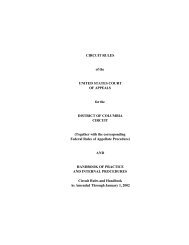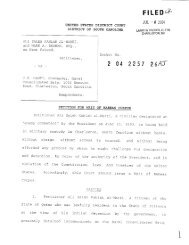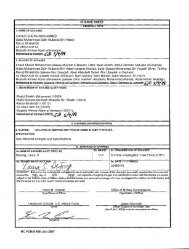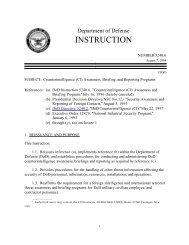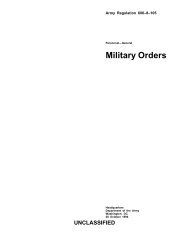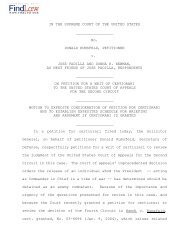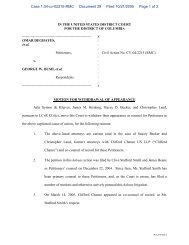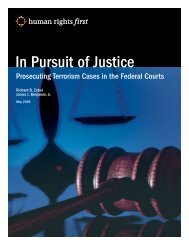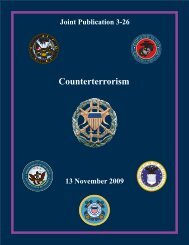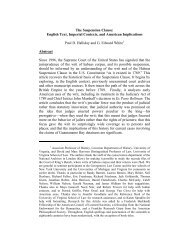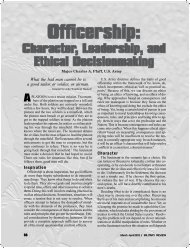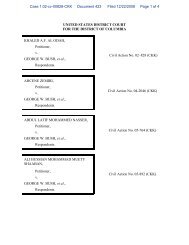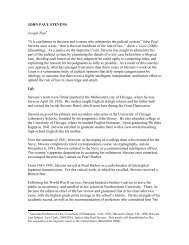Government Merits Brief - Hamdan v. Rumsfeld
Government Merits Brief - Hamdan v. Rumsfeld
Government Merits Brief - Hamdan v. Rumsfeld
You also want an ePaper? Increase the reach of your titles
YUMPU automatically turns print PDFs into web optimized ePapers that Google loves.
46<br />
propriate. But as the omitted introductory clause of the sentence<br />
petitioner quotes makes clear, the President may tailor<br />
those procedures to the current exigency, and so the procedures<br />
are “[s]ubject to * * * any regulations prescribed by<br />
the President or by other competent authority.” Ibid. 21<br />
More generally, petitioner’s assertion that military commissions<br />
historically have been required to follow rules for<br />
courts-martial is incorrect. It is settled that military commissions<br />
“will not be rendered illegal by the omission of details<br />
required upon trials by court-martial” (and that the rules for<br />
commissions may by regulation depart from those of courtsmartial).<br />
Winthrop, supra, at 841. Thus, while military tribunals<br />
“should observe, as nearly as may be consistently with<br />
their purpose,” the rules of procedure of courts-martial, conformance<br />
to those rules “is not obligatory,” and military commissions<br />
were “not bound by the Articles of War.” William E.<br />
Birkhimer, Military <strong>Government</strong> and Martial Law 533-535<br />
21 Petitioner asserts (Br. 22-23) that, during World War II, the United States<br />
took the position that “conducting a commission without the participation of the<br />
accused was a punishable violation of the laws of war.” Petitioner may<br />
personally be present at every stage of the trial before his military commission,<br />
however, except if he engages in disruptive conduct or the prosecution<br />
introduces classified or otherwise protected information. 32 C.F.R. 9.5(k);<br />
Military Commission Order No. 1, § 6(B)(3) and (D)(5)(b). Those exceptions,<br />
moreover, are surely permissible. See Charter of the International Tribunal,<br />
Aug. 8, 1945, art. 12, 59 Stat. 1548, 82 U.N.T.S. 290 (authorizing trial of<br />
defendant in his absence “in the interests of justice”). International tribunals,<br />
like domestic courts, permit trial proceedings in the defendant’s absence if he<br />
engages in disruptive conduct. See, e.g., International Criminal Tribunal for<br />
Former Yugoslavia R.P. & Evid. 80. Equally compelling reasons support the<br />
rule permitting the exclusion of the defendant when the prosecution is<br />
introducing classified or otherwise protected information for which no adequate<br />
substitute is available and whose admission will not deprive the defendant of<br />
a full and fair trial. See Pet. Br. App. 64a. And there is certainly no basis to<br />
presume, before the trial has even commenced, that the trial will not be<br />
conducted in good faith and according to law.



